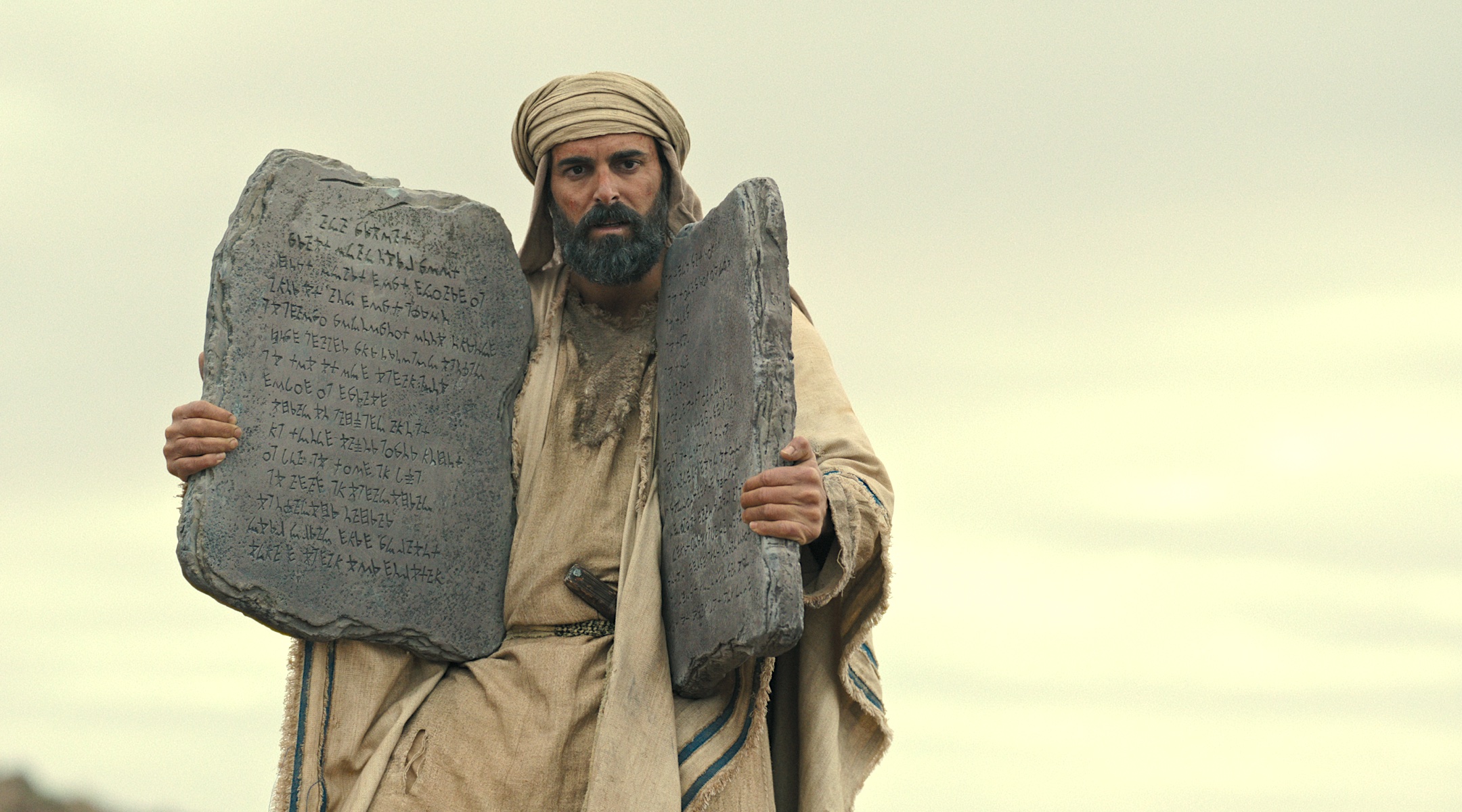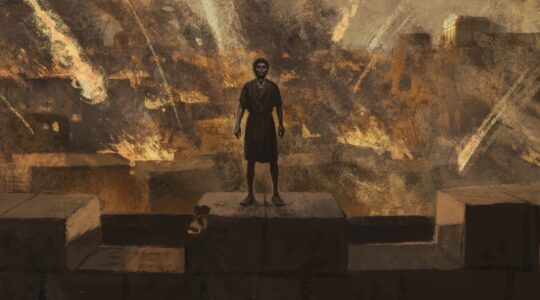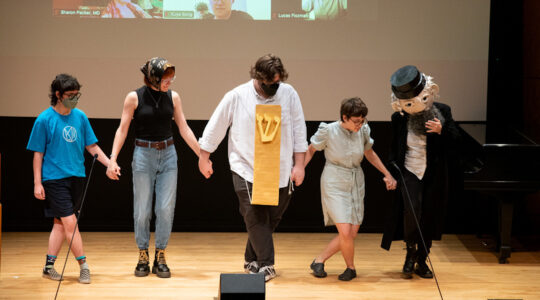(JTA) — Nearly every Easter and Passover season since 1973, Americans have tuned in to ABC to watch Cecil B. DeMille’s 1956 sand-and-sandals epic “The Ten Commandments.”
This year, Netflix picked the season to premiere “Testament: The Story of Moses,” a docudrama retelling the Exodus with expert commentary from religious leaders across a variety of Jewish, Christian and Muslim denominations. The series — the company’s first foray into the growing faith-based movie marketplace — debuted as the No. 1 show on the streaming platform.
What edge does “Moses” have over the show it displaced from the top spot, the big-budget sci-fi drama “Three Body Problem”? Not great reviews, that’s for sure: The few takes on “Testament” have been negative, citing “mediocre” visual effects, biblical inaccuracies, and claims of empty attempts to anachronistically interpret Moses’s story as one of social justice.
But Rabbi Maurice Harris, one of the onscreen Jewish commentators and the author of “Moses: A Stranger Among Us,” said he understands the appeal.
“This is one of the better examples of this kind of Bible story brought to the big screen,” Harris told the Jewish Telegraphic Agency. “And I also think maybe it’s got enough that’s surprising in it for viewers coming from different backgrounds to sort of keep people engaged.”
Harris, a Reconstructionist rabbi based outside of Philadelphia, said he was initially approached for the project back in 2020 but did not hear back from the producers until 2022, at which point he wanted to ascertain the Turkish-American production company’s commitment to a religiously diverse perspective and a regionally accurate cast.
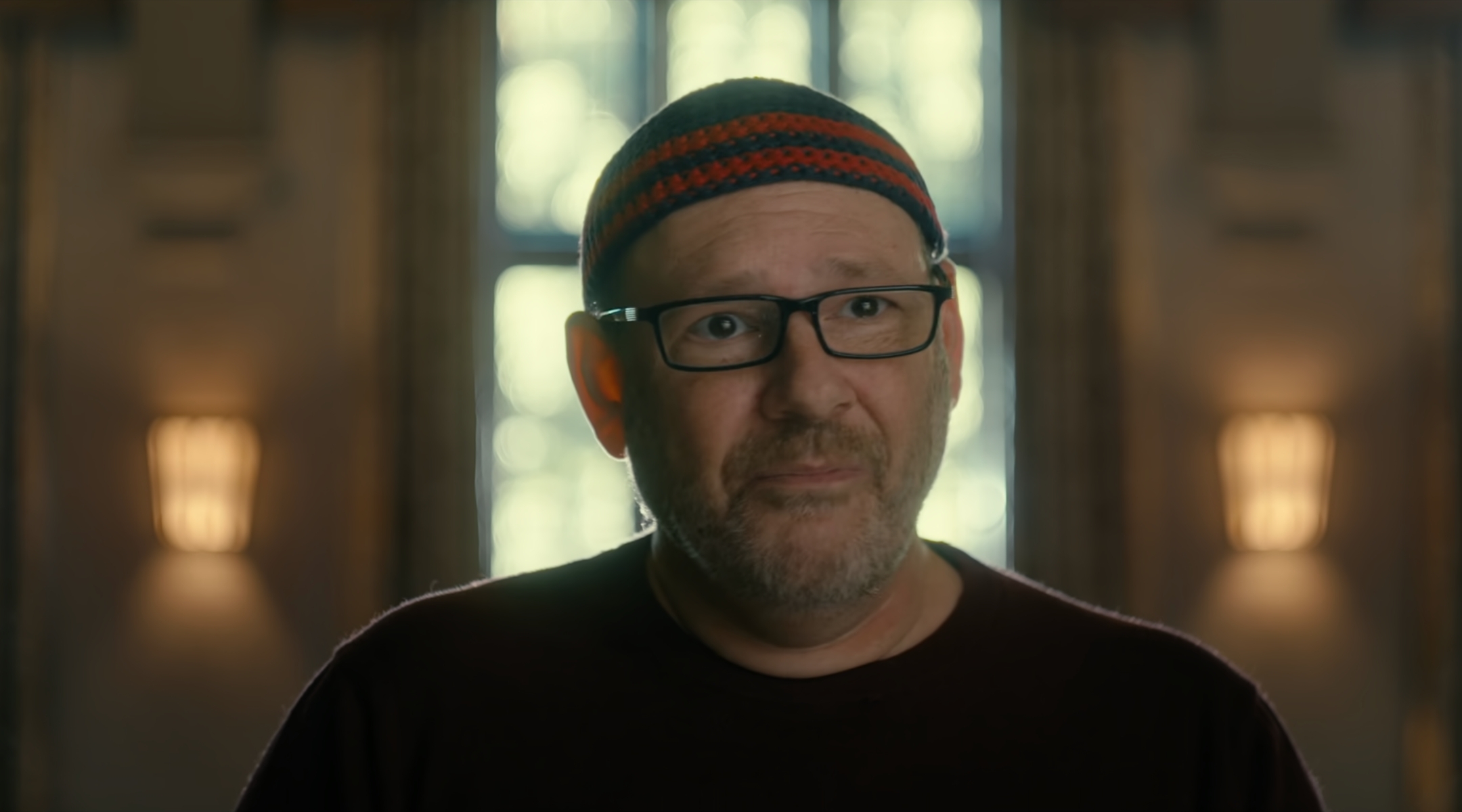
Rabbi Maurice Harris is one of multiple rabbis to appear in the docu-drama series “Testament: The Story of Moses.” (Netflix)
Ultimately, Harris joined three other rabbis — Menachem Posner, Rachel Adelman and Shlomo Einhorn — in commenting on the life of Moses, played by the Israeli actor Avi Azulay. He said he believed the diversity of the commentators, plus the centrality of Moses in all three Abrahamic religions, has helped propel the series to its success.
“Within 15 minutes, you’re confronted with the fact that you’re hearing from Muslims and Jews and Christians and from women and men,” Harris said. “And if you’re somebody who comes from a small-c highly conservative religious background that is sort of committed to interpreting the Bible very literally, you’re confronted with the fact that you’ve got some conservative and liberal members of these three traditions who are also responding. And my guess is that that’s probably helping expand the audience.”
Previous film and television adaptations of the story of Moses include DeMille’s “The Ten Commandments,” which starred Charlton Heston as Moses and Yul Brynner as Pharaoh; 1975’s “Moses the Lawgiver” starring Burt Lancaster and Anthony Quayle as Moses and Aaron; Mel Brooks’ 1981 portrayal of Moses in multiple comedy sketches in “History of the World: Part I”; and “Moses,” the 1995 miniseries starring Ben Kingsley as the titular biblical figure. The 1998 animated DreamWorks musical “The Prince of Egypt,” featuring songs performed by Israeli musician Ofra Haza, has become a cult favorite.
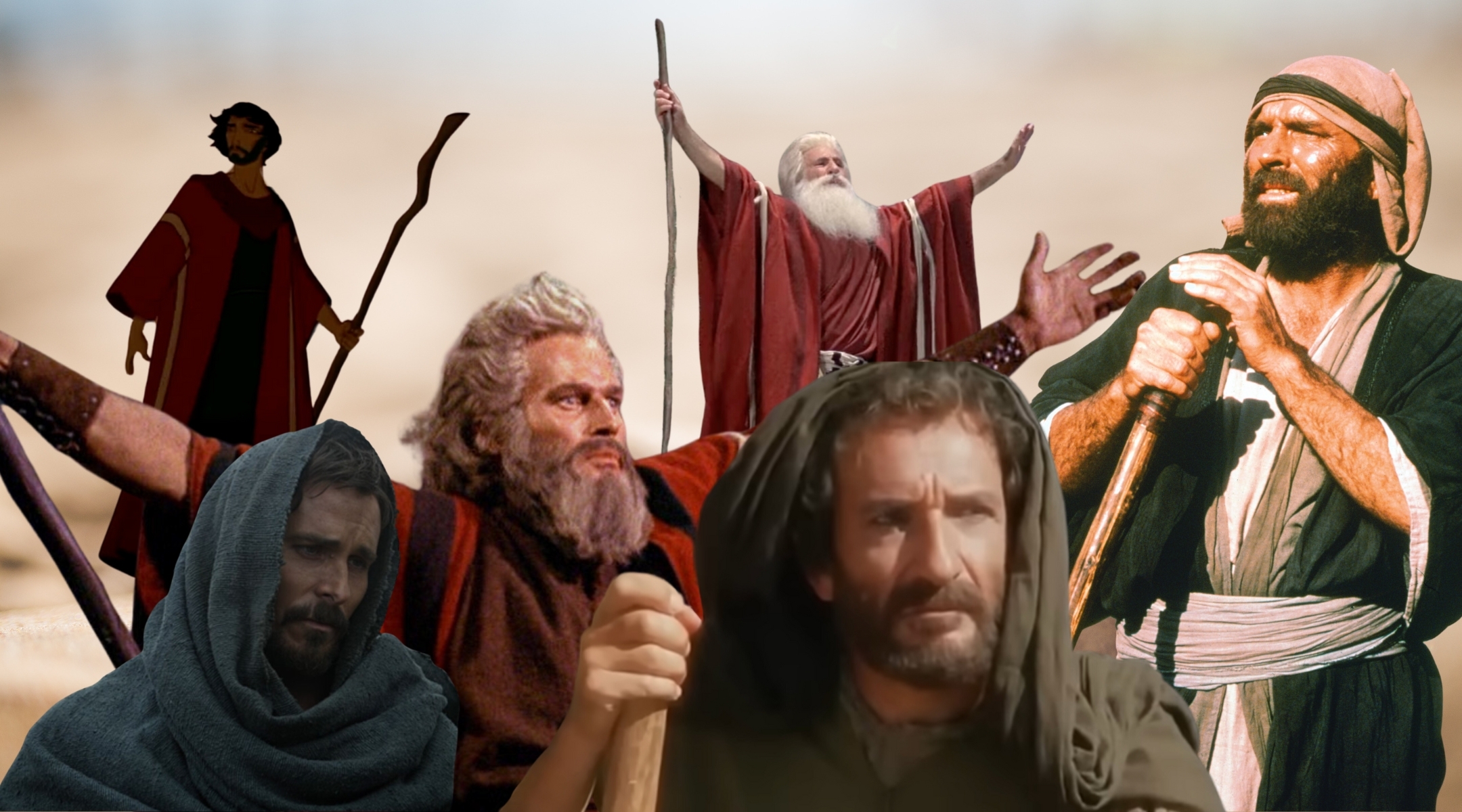
The biblical figure of Moses has been portrayed over the decades by Val Kilmer, Burt Lancaster, Ben Kingsley, Mel Brooks, Christian Bale, and Charlton Heston. (Images via YouTube, Getty, Wikimedia Commons. Design by Jackie Hajdenberg)
Ridley Scott’s 2014 epic “Exodus: Gods and Kings,” featured an all-star cast, including Christian Bale as Moses, Joel Edgerton as Pharaoh and Ben Kingsley as Nun, one of Moses’ assistants and the father of Joshua the spy, portrayed by Aaron Paul. (Despite its cast, director and hype, “Exodus: Gods and Kings” scored poorly among critics.)
The Netflix version uses an increasingly popular form of storytelling known as a hybrid documentary, in which dramatized scenes are interspersed with more traditional footage of experts and, in cases where Bible stories match or reflect the record, historical evidence. Over three episodes, the show depicts Moses’ rise as a leader of the Israelites in Egypt, his confrontation with Pharoah and, finally, the parting of the Red Sea as Moses leads his people from slavery to freedom.
Harris said he appreciated how the series made use of lesser-known, extra-biblical Jewish texts known as midrash, giving even a viewer like him with substantial knowledge of Moses’ story something new to think about.
The minor character of Serach bat Asher, for example, makes an appearance in the first episode. In the Torah, Serach is the daughter of Asher and granddaughter of Jacob and is never part of any narratives, but only listed in two censuses, in the book of Genesis and the book of Numbers, hundreds of years apart.
“For the ancient rabbis who were faithful to the belief that the Torah was completely dictated by God and has no mistakes in it, they had to make sense of this person who seemed to have this crazy long life — and they run with this,” Harris explained. “They develop this elaborate midrash about her being this woman who lives almost like an immortal figure, across these huge time spans of Jewish history.”
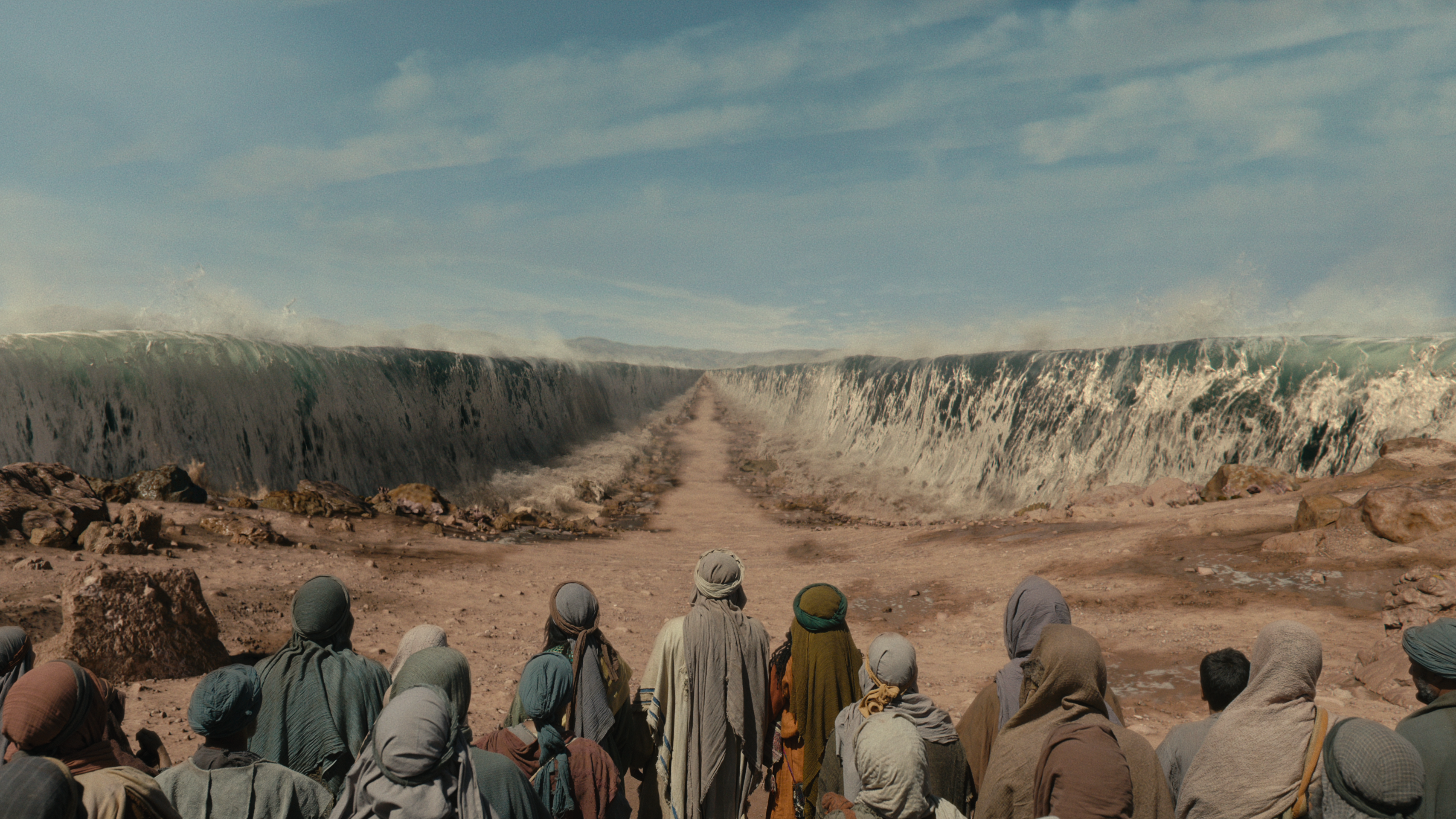
The Israelites prepare to cross the Red Sea in “Testament: The Story of Moses.” (Courtesy Netflix)
In “Testament,” Serach is also the keeper of God’s true name. To prove that Moses has truly been visited by God, he tells Serach the name as revealed to him, and the Hebrew people recognize Moses’s significance as their leader.
“I was surprised that they found a way to give a nod to this figure who, if you’re not immersed in learning about midrash, you just wouldn’t know about it all,” Harris said.
He added, “I don’t know whether what they’re weaving in is something from one of the other religious traditions, or whether it’s something that they took some creative license themselves, but I feel respect for the choices that they made.”
In addition to including multifaith voices and unsung stories, Harris appreciated the inclusion of comments by Andy Lewter, a historian and bishop at Hollywood Full Gospel Baptist Cathedral who reflects on the similarities between slavery in the Bible and in the United States.
“The slave labor of Egypt was critical to the economy of the same,” Lewter, who is African American, says in “Testament.” “And so you say, ‘Let my people go,’ the natural question of Pharaoh and the entire Egyptian economy is, ‘Well, who’s going to do the work? Who’s going to shoulder this labor?’ Just like 1863, the Emancipation Proclamation raised the question of, ‘Well, if you let all the slaves go, who’s going to pick the cotton?’”
The first episode, which runs 81 minutes, also focuses heavily on the Hebrew midwives, and their efforts to conceal the birth and early life of Moses at a time when the Egyptians were killing the Hebrews’ first-born sons. In the series, Moses’s wet nurse in the Egyptian palace turns out to be his biological mother, Yocheved — an account also found in midrash.
“I love the fact that this story begins with this one nursing woman and her infant,” said Celene Ibrahim, a scholar of Islamic studies who has taught religious studies at Hebrew College and is also featured in “Testament.” “How likely in our conception do we think that a revolution is going to start with a nursing mother?”
Netflix so far has a small faith and spirituality film category, but when used as a search term, more options appear. The majority of those programs are heavily Christian, with the exception of a few Jewish titles. But programs like “Seinfeld,” Showtime’s comedy drama series “Shameless,” and Nickelodeon’s tween comedy series “Victorious” also appear in the search results for faith and spirituality.
Exactly what’s next for Netflix in faith-based programming is not clear, but it’s unlikely that the platform will produce content for Jewish audiences specifically. “Testament: The Story of Moses” has been streamed 13.5 million times in the first five days since its release — meaning that about as many people have watched it this week as there are Jews in the world
